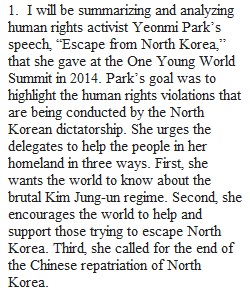


Q 1) First, remind me what text you will summarize and analyze for the Rhetorical Analysis project. Then break down the basics of the "rhetorical situation" (purpose, context, audience) of the text. • What is the author's purpose? Are they selling, convincing, calling for action, etc? • What is the context? What outside information might the audience need to fully understand the author's argument, or what surrounding events or conversations have taken place that impact this author's argument? • Who is your author's target target audience? 2) Did you know that MLA stands for Modern Language Association? They are the group in charge of setting and updating the guidelines for MLA formatting, which is mainly used by writers in the Arts and Humanities, such as English. APA stands for American Psychological Association, and they set the guidelines for APA formatting, typically used by writers in the Sciences, Medicine, Business, and, of course, Psychology. Why do we even have formatting styles? It's not to make your life harder, though it may seem that way sometimes. We format for consistency and so that readers can know what to expect. Why do we have to cite our sources? For several good reasons: so that we can avoid plagiarism, to give authors credit, to keep ourselves organized, and to allow our readers to find more information. • Which style, MLA or APA, do you think would be more practical for you to practice? Note, MLA is most commonly taught, but may not be the most commonly used in your desired field of work or study. • Have you ever used MLA or APA style formatting for your essays before? • What seems to be the most challenging part of formatting and citation for you? • What questions do you have for me as we begin practicing with these formatting styles?
View Related Questions